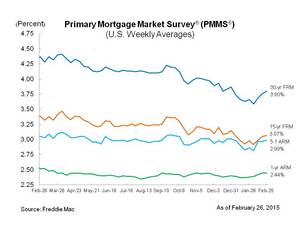Ross Runfola doesn’t want an appraiser from the city coming into his home on Cleveland Avenue.

Certified appraiser John Zukowski, vice president of Emminger Newton Pigeon Magyar, Inc., collects information while looking at a property on Lancaster Avenue in Buffalo on Monday. Derek Gee/Buffalo News
Robert Freedman feels the same way about an appraiser in his home on Chatham Avenue.
They are among some 80 Buffalo homeowners who contend the city does not have the right to send an appraiser into their homes to assess values without their permission.
Earlier this month – after six years of litigation – an appeals court agreed.
The ruling from the state Appellate Division in Rochester says a homeowner can refuse entry to an appraiser without being penalized. And the decision has implications for appraisal challenges in suburban municipalities from Hamburg to Lockport, as well.
In the court case, which was brought by eight Buffalo homeowners, the Appellate Division overruled an earlier State Supreme Court decision and ruled the city’s position on interior inspections violated the homeowners’ privacy rights, which are protected by the Fourth Amendment.
“There just seems to be an inconsistency with how they do their evaluations. They should be able to make an evaluation from the outside. It’s really an invasion of privacy, and it’s wrong for my house or any other house in the neighborhood,” said Runfola, a social sciences professor at Medaille College.
Initial assessments are based on a home’s exterior appearance and other factors, such as location, number of bedrooms and neighborhood home sales.
In 2009, Runfola’s two-story house, built in 1915, was assessed at $340,000. He maintains the four-bedroom house should have been valued at $210,000.
The eight homeowners in the appellate court case sought to lower their assessments by between $16,000 and $70,000.
The five-judge panel’s decision is a victory for fairness and constitutional rights, said Peter Weinmann, attorney for the homeowners.
“The city has dragged its heels on this for six years, trying to fight taxpayers seeking a fair tax assessment for their homes,” Weinmann said. “The city can still value a property, and determine the interior spaces, without exercising a full invasion of privacy.”
The city intends to appeal the decision to the Court of Appeals, the state’s highest court, said Joel Kurtzhalts, the special counsel who argued the city’s case.
It is necessary for an appraiser to enter a home to develop the level of detail needed to fairly and accurately assess its value, Kurtzhalts said.
“Our appraiser said it was important in determining market value to inspect both the interior and exterior, so we could tell the quality and condition of the property,” Kurtzhalts said. “He felt he would need to do so, so he wouldn’t be making too many guesses or speculating, and be more accurate than less.”
Broad impact
The appellate ruling doesn’t settle the homeowners’ assessment challenges against the city. But it does block city officials from using interior inspections as a way to justify what they think the assessments should be.
Most of the middle- and upper-middle-class homes involved in the legal challenge are located around Delaware and Elmwood avenues in Buffalo, on streets such as Highland, Lancaster and Lafayette avenues. Other homes are on Morris, Woodbridge and Depew avenues in North Buffalo, among other streets.
Weinmann said his suburban clients are fighting similar appraisal challenges and the appellate decision will affect them, as well. Those clients have homes in the towns of Amherst, Aurora, Clarence, Grand Island, Hamburg, Lockport and Orchard Park.
Typically, when a homeowner and a municipality’s assessor don’t agree on an assessed value, they compromise. But when a compromise can’t be reached – as happened in the city homeowners’ case – the homeowner and the city are required to procure their own appraisals.
That requirement brought about the Fourth Amendment issue.
The city insisted its appraiser have access to the inside of each of the homes to evaluate the properties, and that led to a years-long impasse as the case wound its way through the courts.
Supreme Court Justice Timothy J. Walker upheld the city’s position in 2013, ruling that appraisers had the right to go inside the houses. Homeowners who refused to let the appraisers inside would forfeit their right to appeal, Walker ruled.
The appeals judges sided with the homeowners in the Feb. 6 decision.
The city failed to show that its interest in interior inspections outweighed the homeowners’ Fourth Amendment right to privacy, the appellate court ruled.
The city assessment determines how much the homeowners pay in property taxes, based on the rate set by the Common Council.
Weinmann said many homeowners aren’t even aware when their assessments increase because the banks holding their mortgages typically pay the taxes.
But for some homeowners upset with their assessments, it’s financially worthwhile to hire a lawyer and seek legal help.
The city has no reason to send an appraiser into homes because all the information it needs can be found in its own files, Weinmann said.
“If there were any significant improvements, they would have been known to the city by virtue of the permit process. All the city has to do is consult its own records. There’s no need to go inside the house,” Weinmann said.
In addition, interior improvements are less of a factor in a home’s worth than is believed, he said.
“Improvements to an interior of a house have relatively little impact upon its value compared to overall size, location, numbers of bedrooms and bathrooms, and features,” he said. “If you have three or four bedrooms, or take the house and put it on the other side of Richmond, it will make an appreciable difference. But a granite counter top won’t make an appreciable difference.”
But John Zukowski, an independent appraiser hired by the city, said the interior condition of a home can make a difference, if, for instance, the kitchen or basement has been remodeled or, on the other end, if no major renovations or updates had been made for many years.
“Many new constructions have fully finished basements and they add value to the property,” he said. “Without inspecting a property, how would you know that? New kitchens – although the cost of putting one in may not equal the return you’ll get – still wind up adding value to the home. It’s whatever adds value. Otherwise, you’re basing the interior of the property on a set of assumptions that may or may not be correct,” Zukowski said.
Zukowski said what can be learned can go beyond what is on file with the city.
In his experience, the appraiser said, homeowners rarely turn down an appraiser asking to evaluate the inside of a house.
“Homeowners that generally don’t have a lot to hide don’t flinch at allowing us to inspect the property,” he said.
Still, Zukowski understands the reluctance to let the government into their homes.
“I see both sides,” he said. “Homeowners don’t want to be infringed upon. But at the same time the city just wants to do what’s right and make the information accurate.”
Clock’s ticking
Freedman, the Chatham Avenue homeowner, agrees with the notion that valuing real estate is an art, not a science.
The city assessed his two-story, three-bedroom home at $215,000. The assessment for the brick house, built in 1910, should be $40,000 lower, according to court papers.
“Years ago, when we started this, we compared our assessments with others around us, and it seemed like we were getting overassessed, and nothing has happened in the meantime to change that. Plus, there are some other things – like we’re the only ones in the vicinity who share a driveway and garage – which we feel should be taken into account,” Freedman said.
Freedman, an attorney, said he wouldn’t want city representatives going through his home.
“I wouldn’t be that excited about having that done unless they made that part of the system for everyone,” Freedman said. “It would have a chilling effect on property owners exercising their right to challenge property tax assessments.”
Meanwhile, Weinmann’s clients have paid taxes based on the higher assessments for each of the past six years. The cases will either continue to be litigated or be resolved through compromise.
Three of his clients have died since court action began, and others are anxious to reach a conclusion.
“I have an elderly client who wanted to have the case resolved so we don’t have to send her the refund check at Forest Lawn,” Weinmann said.
email: msommer@buffnews.com
repost from: http://www.buffalonews.com/city-region/citys-appraisers-dont-need-to-look-inside-houses-appellate-court-says-20150223













